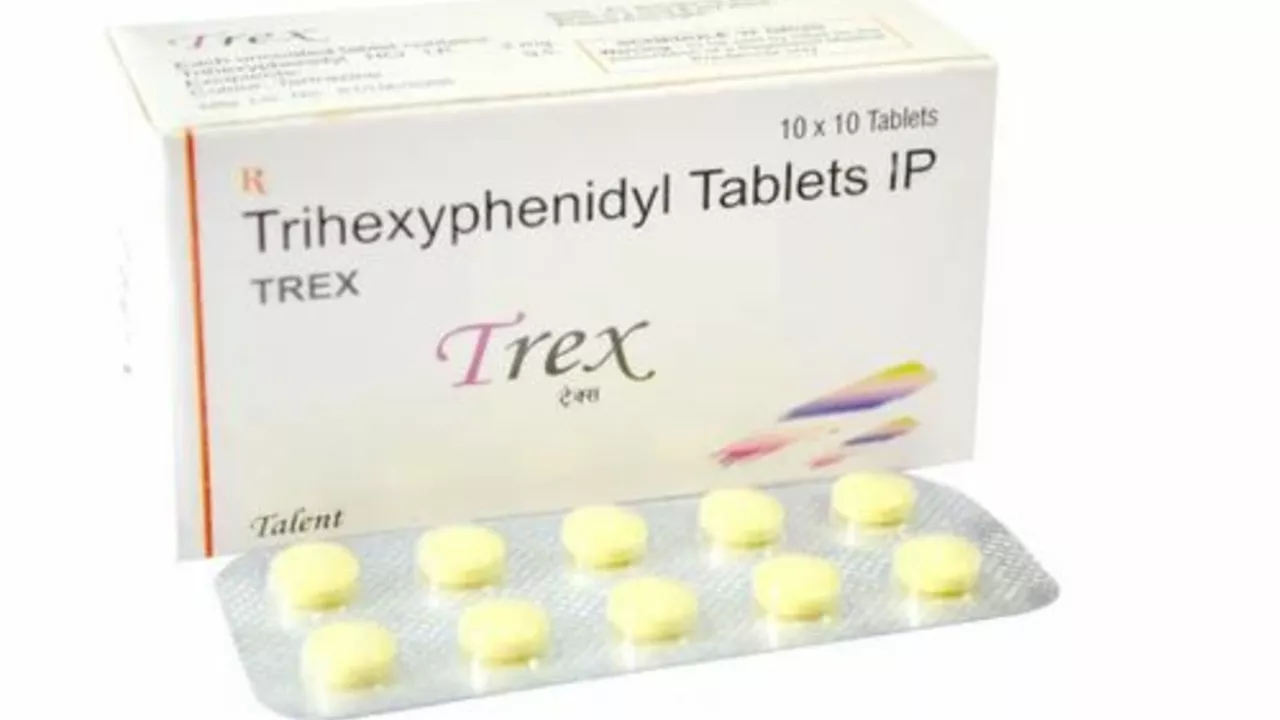Trihexyphenidyl: Uses, Dosing, Side Effects, and Safety
Trihexyphenidyl (also called artane) is a medication doctors prescribe to help control tremor, stiffness, and movement problems in Parkinson's disease and some drug-induced movement disorders. It works by blocking acetylcholine, a brain chemical that can cause muscle tightness and tremor when out of balance. For people with tremor-dominant Parkinson's or young patients, it can make daily tasks like writing and buttoning shirts easier.
Typical starting doses are low — often 1 mg two or three times a day — and doctors increase the amount slowly until symptoms improve or side effects show up. For many adults the effective range falls between 2 mg and 6 mg daily, though some people take more under close medical supervision. Never change dose without talking to your prescriber.
What to watch for
Anticholinergic side effects are common. Expect dry mouth, blurred vision, constipation, and trouble peeing. Lightheadedness and sleepiness can occur, and older adults may become confused or forgetful. If you notice sudden confusion, high fever, or inability to urinate, get medical help right away.
Trihexyphenidyl can interact badly with other drugs that dry you out, such as some antihistamines, tricyclic antidepressants, and bladder medications. Alcohol and sedatives increase drowsiness. People with glaucoma, enlarged prostate (BPH), severe heart disease, or certain bowel problems should avoid it or use it carefully.
Practical tips for taking trihexyphenidyl
Take the drug at the same times every day to keep levels steady. If dry mouth bothers you, sip water, chew sugar-free gum, or use saliva substitutes. For constipation, add fiber, fluids, and activity before using laxatives. If vision blurs, avoid driving until you know how the medicine affects you.
If you stop trihexyphenidyl suddenly, symptoms like increased tremor or muscle cramps can return. Your doctor may want you to taper off slowly. Keep regular check-ins so dose adjustments and side effects can be handled quickly.
This medicine works best when paired with other Parkinson's treatments as directed by your neurologist. It can help specific symptoms but won’t slow disease progression. For drug-induced movement problems caused by antipsychotics, trihexyphenidyl may be a short-term fix while the underlying medication is changed.
Always tell your healthcare team about all drugs, supplements, and medical conditions. If you are pregnant, breastfeeding, or plan to become pregnant, discuss risks and benefits—information is limited. If you need help paying for medication, ask your pharmacist about savings programs or generic options.
Questions about trihexyphenidyl? Bring a list of what matters most—symptoms that bother you, side effects you notice, and other medications you take—to your next appointment. That keeps the conversation focused and makes decisions easier.
Monitoring usually involves checking how well symptoms respond and watching for thinking or memory changes. Your doctor may test eye pressure if you have glaucoma risk. Keep a simple symptom diary: note tremor severity, sleepiness, and any bladder troubles. Bring that to appointments. Store tablets at room temperature, away from moisture and children. Dispose of old medicine safely through a pharmacy take-back program. Ask questions every visit.
